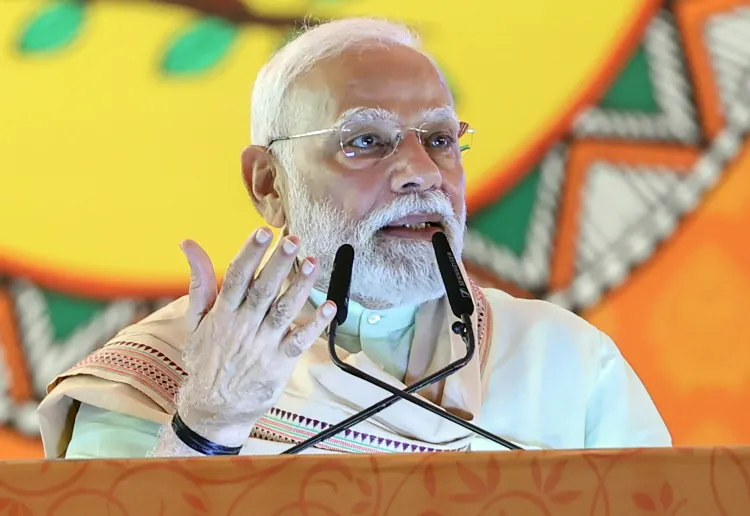Will GST 2.0 Transform Ease of Living and Business?

Synopsis
Key Takeaways
- GST 2.0 aims to improve the affordability of essential goods.
- Tax rates on many essential items will drop to 0% or 5%.
- The reforms are designed to support MSMEs and farmers.
- Consumers can expect more choices in food products.
- Immediate financial relief for households is expected.
New Delhi, Sep 19 (NationPress) Prime Minister Narendra Modi emphasized on Friday that the recent GST reforms represent not merely technical adjustments but significant initiatives aimed at improving ease of living, ease of doing business, and ease of investing.
"By reducing rates on essential foods and packaging, these reforms make groceries more affordable, support MSMEs, assist farmers, and enhance India's global food competitiveness," PM Modi remarked.
The Prime Minister's comments came in response to an article by Union Minister Chirag Paswan regarding the GST 2.0 reforms, which are set to take effect on September 22, just in time for the festive season, aiming to lower the prices of over 90 percent of goods available in markets nationwide.
"In his Independence Day speech, Prime Minister Modi pledged to implement next-generation Goods and Services Tax (GST) reforms by Diwali. Starting September 22, this commitment will reflect in grocery bills across the country. This is the core of these changes: it's a relief you can taste," noted Union Minister Paswan in the article.
Key items such as ultra-pasteurized milk, packaged paneer, and traditional Indian breads will be subject to 0 percent GST. Most processed foods, including biscuits, namkeens, breakfast cereals, and coffee, will have a 5 percent rate. This aims to maintain food affordability, provide clearer classifications and rate certainty, and enable industries to prioritize scale and quality.
Importantly, these reforms come as India's food sector enters a transformative phase, fueled by increasing incomes, urbanization, and a youthful population that values health and convenience, as highlighted in the article.
For families, the benefits will be immediate. A broad array of items at 0 percent or 5 percent GST will lower monthly expenses without requiring families to compromise on hygiene or nutrition. Reduced indirect taxes on everyday foods will free up additional disposable income monthly, particularly for recurring grocery expenses. As competition reshapes prices, consumers can anticipate more options in fortified, ready-to-cook, and ready-to-eat products that suit contemporary lifestyles, the article further elaborated.
The article mentions that MSMEs and farmers will gain from the GST reduction. Food processing connects farmers' incomes to the nation’s nutrition. Affordable processed foods will boost year-round purchases of milk, grains, fruits, and spices, minimizing waste and enhancing price realization, added Chirag Paswan.










